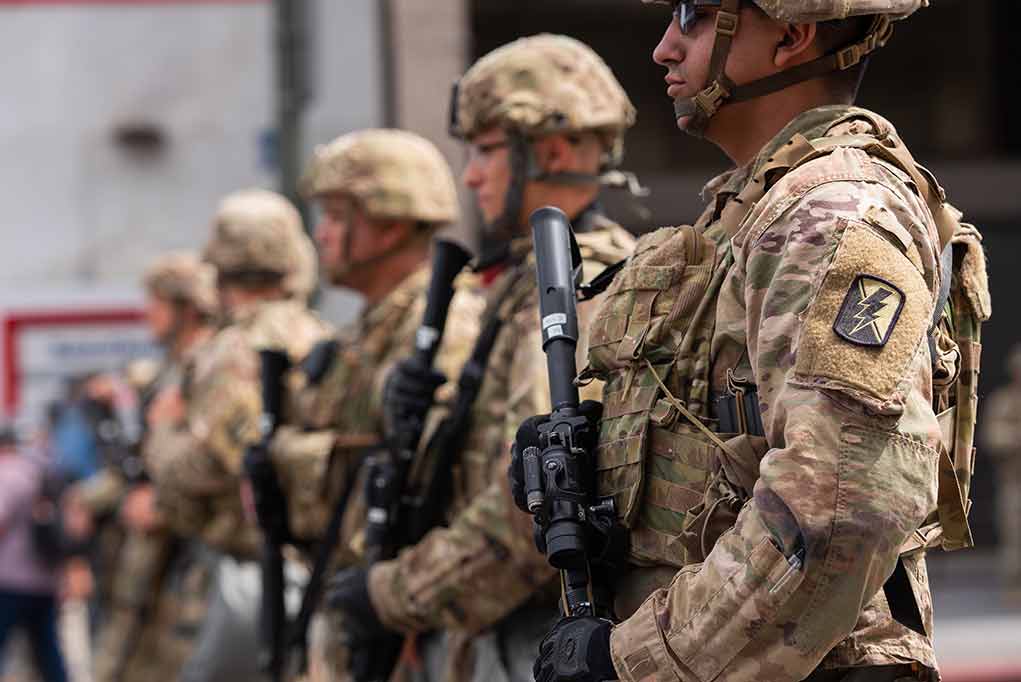
Prime Minister Netanyahu fires back at France’s Emmanuel Macron, accusing him of “standing with a murderous Islamist terrorist organization” after Macron condemned Israel’s humanitarian blockade in Gaza as “shameful.”
Key Takeaways
- Netanyahu’s office accused Macron of echoing “despicable propaganda” and siding with Hamas terrorists instead of supporting Israel’s right to defend itself
- Macron called Israel’s Gaza blockade “unacceptable” and “shameful,” highlighting severe shortages of water, medicine, and humanitarian aid
- Israel’s Defense Minister responded by referencing historic Jewish persecution in France, declaring “President Macron should not preach morality to us”
- The conflict stems from Hamas’s October 7, 2023 attack that killed 1,218 Israelis, with Netanyahu maintaining Israel’s right to eliminate the terrorist threat
- Netanyahu remains resolute that “Israel will not stop and will not surrender” despite growing international pressure over humanitarian concerns
Netanyahu’s Fierce Response to French Criticism
The diplomatic tension between Israel and France escalated dramatically after Israeli Prime Minister Benjamin Netanyahu issued a scathing response to French President Emmanuel Macron’s criticism of Israel’s Gaza blockade. Netanyahu’s office didn’t mince words, directly accusing the French leader of choosing to align with terrorists rather than support Israel’s defensive operations. The statement marks one of the most severe diplomatic rifts between the two nations in recent years, highlighting the increasingly polarized international response to Israel’s ongoing military campaign in Gaza.
“Macron has once again chosen to stand with a murderous Islamist terrorist organisation and echo its despicable propaganda, accusing Israel of blood libels,” stated Netanyahu’s office in an official release that left no room for diplomatic niceties. The statement further emphasized Israel’s determination to continue its military operations despite international criticism: “Israel will not stop and will not surrender.” This defiant stance reflects Netanyahu’s unwavering commitment to eliminating what he perceives as an existential threat to the Jewish state.
Macron’s Humanitarian Concerns Spark Controversy
The diplomatic row was triggered by Macron’s televised interview where he used remarkably strong language to condemn Israel’s handling of the humanitarian situation in Gaza. The French president’s comments represent some of the harshest criticism from a Western leader regarding Israel’s military operations. While European leaders have previously expressed concern about civilian casualties, Macron’s characterization of Israel’s actions as “shameful” crossed a red line for Israeli officials who view their operations as necessary for national security.
“What the government of Benjamin Netanyahu is doing is unacceptable… There is no water, no medicine, the wounded cannot get out, and doctors cannot enter. What he is doing is shameful,” said Emmanuel Macron, President of France.
Macron also pointedly referenced the leverage that the United States holds over Israel through its weapons supply, suggesting that American pressure could force a policy change. This comment particularly irked Israeli officials who view such statements as encouraging external pressure on Israel’s sovereignty during a time of war. The suggestion that Israel should be coerced through its military dependence on allies struck many in Netanyahu’s government as both inappropriate and dangerous given the ongoing security threats.
Israel’s Defense Minister Invokes Historical Jewish Persecution
Adding fuel to the diplomatic fire, Israeli Defense Minister Israel Katz delivered a particularly pointed rebuke to Macron by referencing France’s historical treatment of Jews. Katz’s comments touched on deeply sensitive historical wounds, implying that France’s criticism lacks moral authority given its own troubled past during World War II. By invoking the persecution of French Jews during the Holocaust, Katz effectively raised the stakes in the diplomatic confrontation, moving beyond policy disagreements to questions of historical moral standing.
“We remember well what happened to the Jews in France when they couldn’t defend themselves. President Macron should not preach morality to us,” said Israel Katz, Israeli Defense Minister.
Katz further defended Israel’s military conduct by contrasting it with France’s own military operations throughout history. This comparison served to highlight what Israeli officials perceive as hypocrisy from Western nations that have engaged in their own controversial military actions yet criticize Israel’s efforts to combat terrorism. The defense minister’s comments reflect a broader Israeli frustration with what they see as disproportionate scrutiny of their defensive operations compared to other conflicts worldwide.
Israel Remains Committed to Military Objectives Despite Criticism
Netanyahu has maintained a steadfast position regarding Israel’s military objectives following the October 7 Hamas attack that claimed 1,218 Israeli lives. The prime minister has consistently emphasized three non-negotiable goals: releasing all hostages taken by Hamas, destroying the terrorist organization’s military capabilities, and ensuring Gaza never again threatens Israel’s security. These objectives remain unchanged despite mounting international pressure regarding the humanitarian situation, with Netanyahu positioning the conflict as an existential battle against terrorism rather than a conventional military engagement.
“Instead of supporting the Western democratic camp fighting the Islamist terrorist organisations and calling for the release of the hostages, Macron is once again demanding that Israel surrender and reward terrorism. Israel will not stop and will not surrender,” stated Netanyahu’s office.
Israel resumed large-scale military operations in Gaza on March 18, with indications from military leadership that forces may maintain a prolonged presence in the territory. This strategy aims to maintain pressure on Hamas to release the remaining hostages while systematically degrading the group’s military infrastructure. The operation continues despite warnings from the United Nations and various humanitarian organizations about catastrophic conditions facing Gaza’s civilian population, creating a challenging moral and strategic dilemma that has divided international opinion along increasingly partisan lines.




